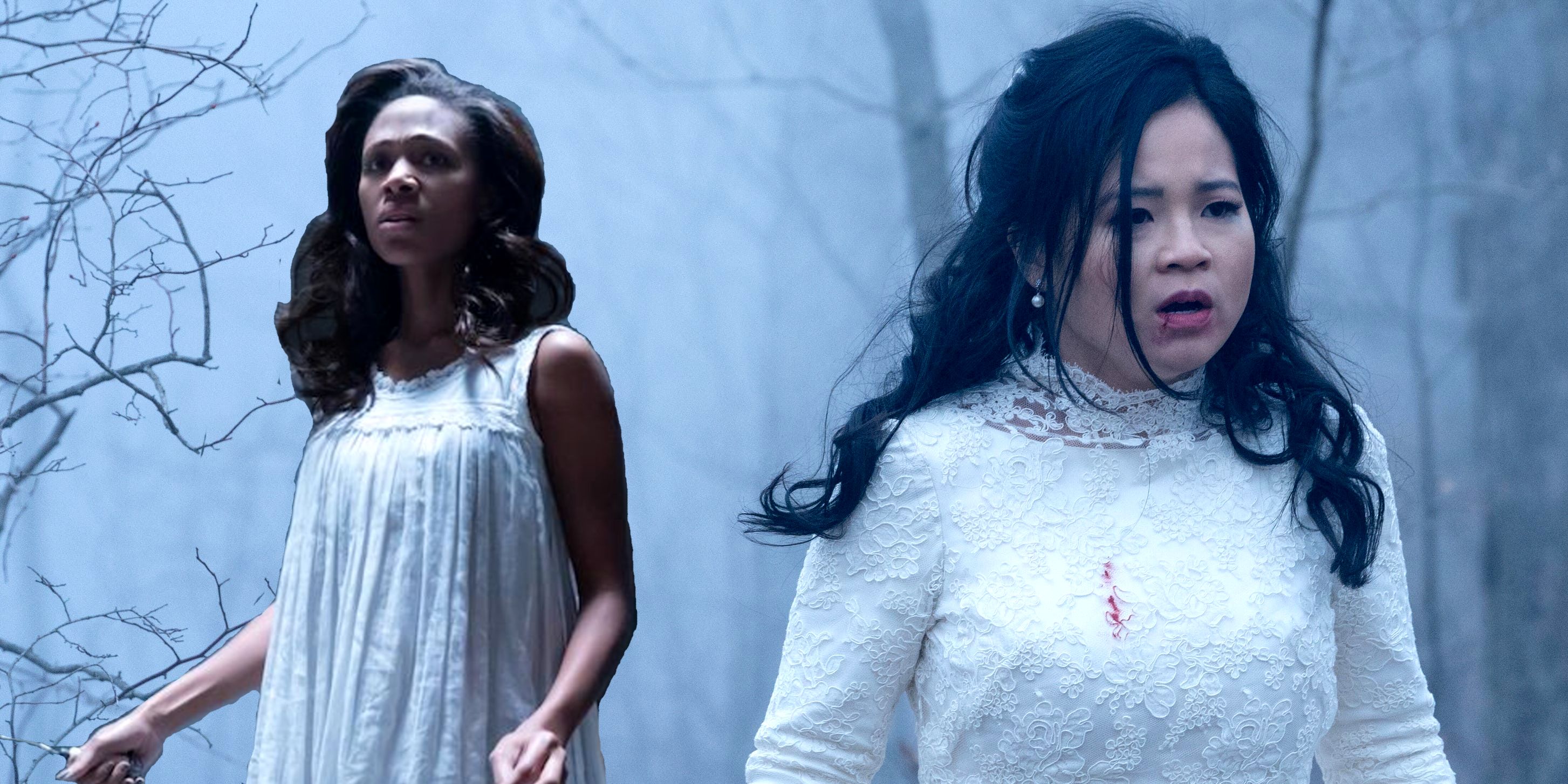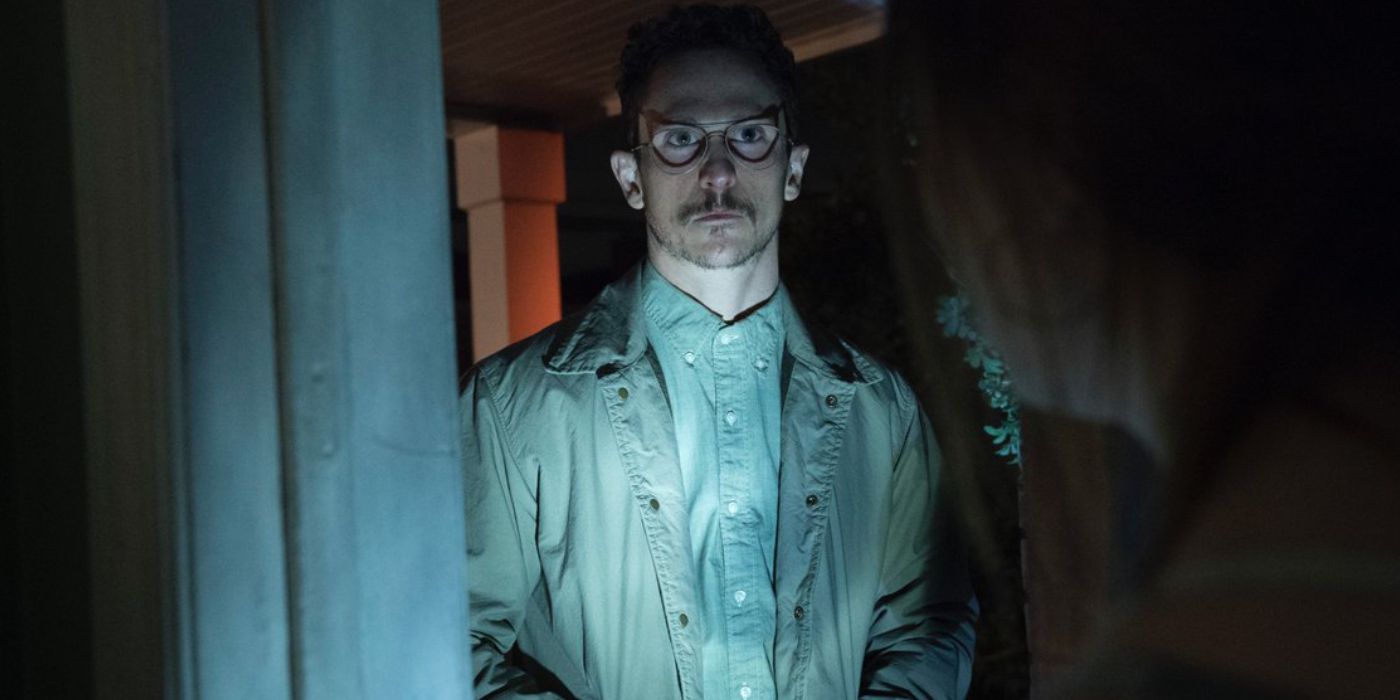Hulu’s horror anthology series Monsterland features a collection of monster stories updated for the modern day–– here’s what the title really means. Similar to the streaming platform’s other horror project, Into the Dark, Monsterland consists of ten episodes, all linked in theme but stand alone in terms of content. Released on October 2, 2020, during the beginning of the Halloween season, the series features a different kind of monster or horror trope in each episode, from shapeshifters to serial killers. The cast features some well-known actors, such as Kelly Marie Tran (the Star Wars sequel trilogy), Nicole Beharie (Sleepy Hollow and Miss Juneteenth), and Kaitlyn Dever (Booksmart and Unbelievable).
Horror is a genre that often includes some kind of allegory — hauntings, sirens, and weird science are often vehicles to explore real and complex societal problems. In that regard, Monsterland is no exception. Despite the fantastical nature of the series’ monsters, each episode is also rooted in real-world drama, often exploring themes of loss and abuse. While the show’s serious nature means it may be less of a romp than other works within the horror genre, it boasts a fascinating premise. In many ways, Monsterland is a breaking down of the genre; forgoing allegory to imagine a world where monsters exist alongside the horrors of the real world.
While Monsterland's title is descriptive (the series takes place in ten different cities throughout the United States, making it a literal land full of monsters), it actually reveals the show’s overarching philosophy: the mythical creatures inhabiting the US are not the real monsters, humans are. The anthology series’ first episode, “Port Fourchon, Louisiana”, telegraphs that message very clearly by setting up audience expectations only to send them crashing down. Despite being introduced as a murderous villain, episode 1's monster, Alex, turns out not to be so evil after all. In fact, he is only on the run because he killed his evil and far more murderous boss, thus putting an end to a string of killings plaguing Louisiana. Conversely, Toni— the perceived victim of the episode—commits the more monstrous act when she abandons her daughter, Jack, in the backseat of a wealthy stranger's car.
The show’s morals are not black and white, and while some monsters in Monsterland have committed atrocities of varying severity themselves, human characters tend to do much more reprehensible things. That said, Monsterland’s human characters are rarely, if ever, monstrous for monstrosity’s sake. Like Toni, many characters are driven by outside forces, ranging from poverty to ineffectively treated mental illness. Toni abandons Jack partially in an effort to be freed from the stress of raising a child with little to no resources, but also with the genuine belief that her daughter will be better off for it.
Nick, the protagonist of episode 2, "Eugene, Oregon," kills a defenseless shadow-being despite its apparent surrender. However, viewers watch as he is convinced by an online group over the course of the episode that the shadow has explicitly caused every problem in his life. Nick rationalizes that by killing the shadow, he's protecting his mother’s life and securing some kind of better future for himself.
Monsterland is a perfect addition to Hulu's 2020 Halloween programming, and seeks to explore the worst reaches of humanity. Yet, it doesn’t unanimously condemn all humans for their bad deeds. The series seems keen to acknowledge the fact that people are often driven to heinous actions by extenuating circumstances or deeply rooted insecurities and fears. Without clearing its characters of any and all guilt, it explores how one’s environment, upbringing, race, gender, or social class may impact the lengths to which people will go—or are forced to go—to survive.


